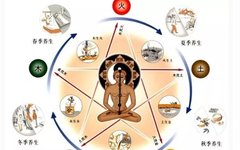 Click“Xiao Bai Focus on Self-Health” to subscribe
Click“Xiao Bai Focus on Self-Health” to subscribe
The Huangdi Neijing (Yellow Emperor’s Inner Canon) is divided into two parts: Ling Shu (Spiritual Pivot) and Su Wen (Simple Questions). It is said to have originated from the Yellow Emperor Xuanyuan and has been passed down orally through generations. Later, it was supplemented and developed by physicians and medical theorists, culminating in a written text during the Spring and Autumn and Warring States periods. It elucidates the mechanisms and pathology of diseases through dialogues and Q&A between the Yellow Emperor, Qi Bo, and Lei Gong, advocating for the treatment of diseases before they manifest and promoting health preservation, longevity, and vitality. It is one of the four classic texts of traditional Chinese medicine (TCM) alongside the Nanjing (Classic of Difficult Issues), Shang Han Za Bing Lun (Treatise on Cold Damage and Miscellaneous Diseases), and Shen Nong Ben Cao Jing (Shen Nong’s Classic of Materia Medica). It is the earliest existing medical classic in China’s medical treasure trove. Theoretical foundations established in this text include the theories of Yin-Yang, Five Elements, Pulse Diagnosis, and Zang Xiang (Organ-Viscera Theory). It is indeed the outline of TCM!
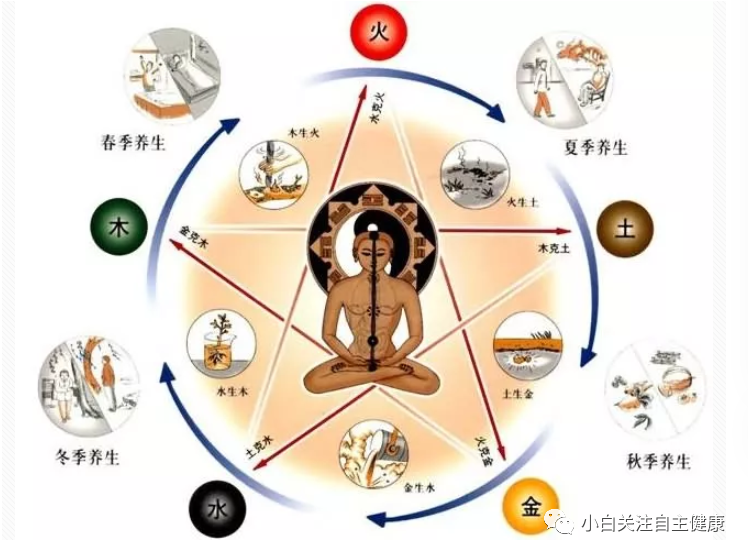
Summary
For any issues related to tendons, treat the liver (肝, gan).
For any issues related to bones, treat the kidneys (肾, shen).
For any issues related to muscles, treat the spleen (脾, pi) and stomach (胃, wei).
For any issues related to blood vessels, treat the heart (心, xin).
For any issues related to skin and hair, treat the lungs (肺, fei).
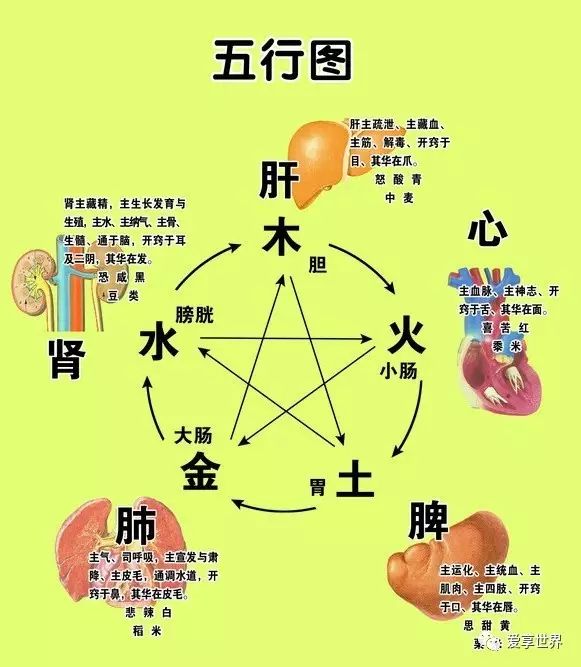
Five Organs
1. Heart (心, xin): The heart is the residence of the spirit, the master of blood, and the root of the pulse. It belongs to the fire element in the Five Elements theory. Physiological functions include: ① governing blood vessels; ② governing consciousness; the heart opens to the tongue, connects with the pulse, manifests on the face, corresponds to joy, and is associated with sweat. The heart is interrelated with the small intestine.
Complementary Products:
Phospholipids: They emulsify and break down fats, promote blood circulation, improve serum lipids, and eliminate peroxides.
Coenzyme Q10: Provides energy to the heart, strengthens myocardial function, prevents atherosclerosis, and clears low-density lipoprotein cholesterol, reducing the risk of sudden cardiac death.
Plant Sterol Fish Oil Gel Candies: Nutritional products that effectively regulate cholesterol levels and prevent cardiovascular diseases.
S Tea: Inhibits lesions, purifies, resists viruses, detoxifies, and reduces inflammation.
Spirulina: Promotes hemoglobin formation, enhances hematopoietic function, and increases oxygen content in the blood.
Bovine Colostrum: Binds with pathogens and toxins, neutralizing their ability to harm the body, and can aggregate with pathogens.
Protein Powder: Supplements high-quality protein, regulates body balance, acid-base balance, and fluid balance.
2. Lungs (肺, fei): The lungs are the place of the corporeal soul and the master of qi, belonging to the metal element. Physiological functions include: ① governing qi and respiration; ② governing diffusion and descent; ③ regulating water pathways; ④ governing the hundred vessels (congestion); assists the heart in regulating qi and blood circulation; the lungs connect to the throat, relate to the skin, manifest on hair, open to the nose, correspond to worry, and are associated with mucus. The lungs are interrelated with the large intestine.
Complementary Products:
Phospholipids: Activate cells and enhance immunity.
S Tea: Controls and alleviates symptoms, clears free radicals, and effectively prevents inflammation.
Bovine Colostrum: Antibacterial and anti-inflammatory, enhances immunity, alleviates allergies, improves the nutritional status of affected organs, and promotes cell regeneration.
3. Spleen (脾, pi): The spleen is the source of qi and blood transformation, the foundation of postnatal life, and stores intention, belonging to the earth element. Physiological functions include: ① governing transportation and transformation; ② governing the elevation of clear qi; ③ governing blood containment; opens to the mouth, relates to flesh, governs the four limbs, manifests on the lips, corresponds to thought, and is associated with saliva; the spleen is interrelated with the stomach.
Complementary Products:
Phospholipids: Promote cell activation, tissue regeneration, and repair.
Gan Wei Kang: Prevents ulcers, reduces damage, and repairs gastric mucosa.
Spirulina: Effectively enhances intestinal immunity, combats mucosal inflammation, and promotes mucosal regeneration.
Protein Powder: Contains a comprehensive, rich, and balanced array of essential amino acids, supplementing gastric nutrition.
Gu Wei Yuan: Super fiber that deeply cleanses intestinal impurities and irritating substances adhered to the intestines, promotes excretion, and prevents colon cancer.
Probiotics: Improve intestinal environment.
4. Liver (肝, gan): The liver is the place of the ethereal soul, the storehouse of blood, and the root of tendons, belonging to the wood element. Physiological functions include: ① governing smooth flow; ② storing blood; opens to the eyes, relates to tendons, manifests on nails, corresponds to anger, and is associated with tears; the liver is interrelated with the gallbladder.
Complementary Products:
Phospholipids: Lecithin in the body converts to choline, promoting fat metabolism and preventing fat accumulation in the liver.
Spirulina: Promotes liver tissue regeneration, repairs liver cells, enhances liver function, provides balanced nutrition, and promotes fat metabolism.
Collagen: Provides protein materials for the liver, promoting recovery and regeneration of liver cells, preventing pathological changes.
S Tea: Various active substances promote fat metabolism.
Gan Wei Kang: Protects the liver and provides auxiliary protection against chemical liver damage.
5. Kidneys (肾, shen): The kidneys are the foundation of congenital essence, store will, and the waist is the organ of the kidneys, belonging to the water element. Physiological functions include: ① storing essence, governing growth, development, and reproduction; ② governing water; ③ governing the reception of qi; relates to bones, governs bone marrow, manifests on hair, opens to the ears and the two yin (anus and perineum), corresponds to fear, and is associated with saliva; the kidneys are interrelated with the bladder.
Complementary Products:
Phospholipids: Diuretic, detoxifying, reducing swelling, and gently lowering blood pressure.
Spirulina: Phycocyanin and phycobiliprotein provide active nucleic acids for repairing damaged kidney cells, supplementing plant-based protein, and promoting cell regeneration.
Bovine Colostrum: Enhances disease resistance and immune function.
S Tea: Caffeine stimulates the kidneys, promoting rapid urine excretion and reducing the retention time of harmful substances in the kidneys.
Collagen: Diuretic, flushes stones, effectively aiding in stone expulsion.
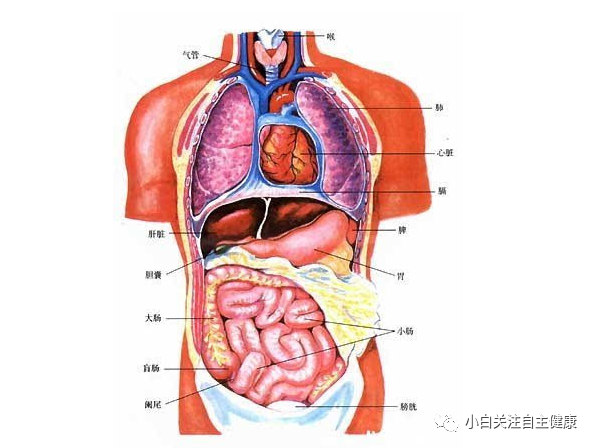

Six Fu Organs
1. Gallbladder (胆, dan): Physiological function: stores and excretes bile, the gallbladder governs decision-making.
2. Stomach (胃, wei): Physiological function: receives and digests food and drink, the stomach descends to harmonize.
3. Small Intestine (小肠, xiao chang): Physiological function: governs reception and transformation of substances, separates clear from turbid, “the small intestine governs fluids”.
4. Large Intestine (大肠, da chang): Physiological function: transmits and transforms waste, the large intestine governs fluids.
5. Bladder (膀胱, pang guang): Physiological function: stores and excretes urine, relying on the kidney’s qi transformation function.
6. San Jiao (三焦, san jiao): Physiological function: facilitates the flow of original qi, governs the qi mechanism and transformation, and is the pathway for water and fluid movement.
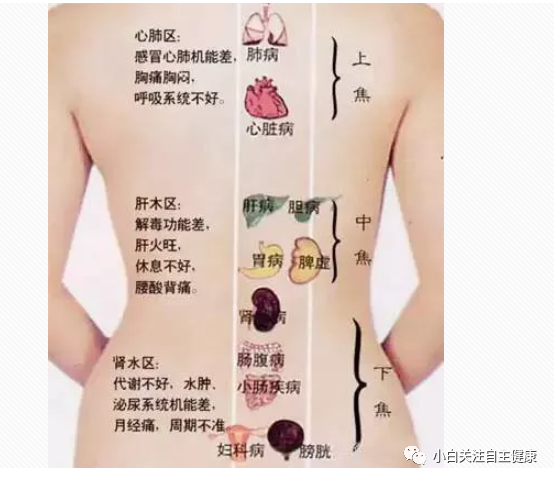
The basic spirit and main content of the Huangdi Neijing include: holistic concepts, Yin-Yang and Five Elements, Zang-Xiang and meridians, etiology and pathogenesis, diagnostic methods and treatment principles, prevention and health preservation, and the theory of Qi dynamics, etc. The “holistic concept” emphasizes that the human body and the natural world are an integrated whole, and that the structure of the human body and its various parts are interconnected. The “Yin-Yang and Five Elements” theory explains the relationship of opposition and unity between things. The “Zang-Xiang and meridians” focuses on studying the physiological functions, pathological changes, and interrelationships of the five organs, six fu organs, twelve meridians, and eight extraordinary vessels.


